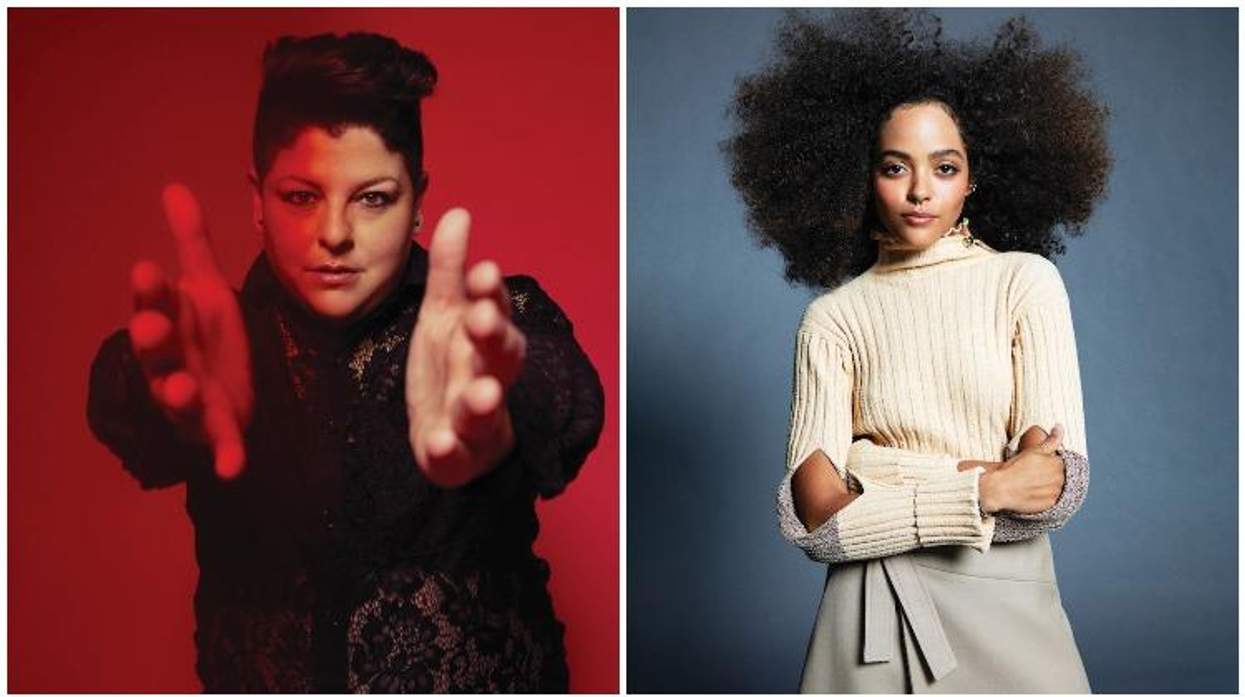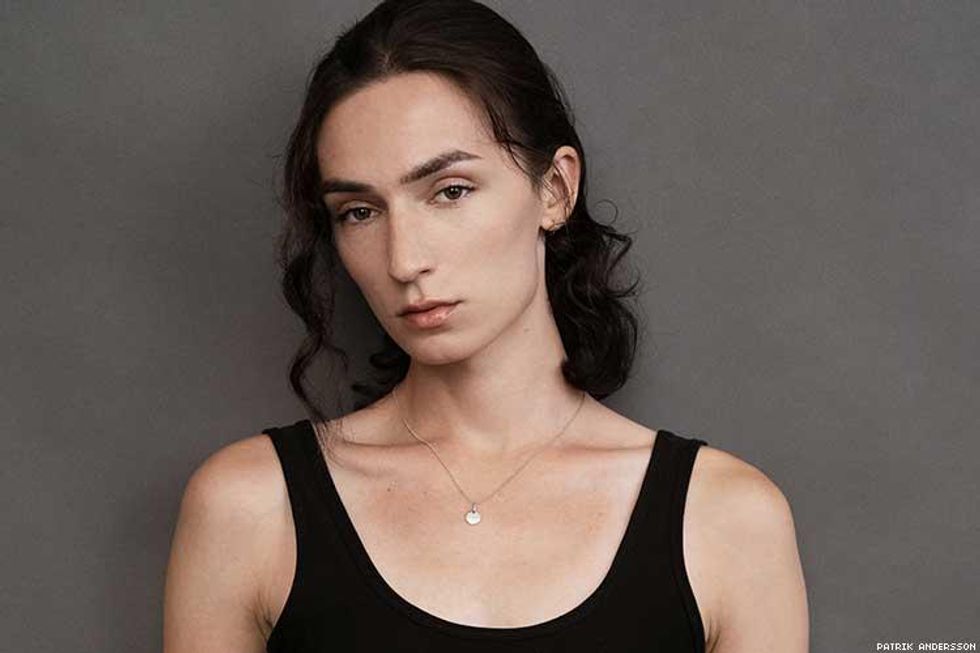At a screening of Netflix's Russian Doll held for Television Academy members, a scene of two men kissing filled the screen, sparking the sound of the ick factor from an audience member. Ser Anzoategui (Eddie on Starz's Vida) was disgusted with that reaction and wished the room had been illuminated to shame the shamer.
"Like, we're still here with gay men?" the transmasculine nonbinary actor exclaims. "Where the fuck am I gonna come into the picture -- and other genders?"
Nonbinary representation has made important strides since Billions star Asia Kate Dillon explained they/them pronouns to Ellen DeGeneres in 2017. However, the near absence of transgender and nonbinary actors nominated for Primetime Emmys (with the exceptions of trans stars Laverne Cox and Rain Valdez) illustrate how far Hollywood has to go. While actors like Dillon and Anzoategui have advocated for awards categories to be more inclusive of different genders, there are other deep-seated issues that must also be addressed.
Mainly, there are still very few nonbinary roles. In addition to Dillon's character Taylor, there are only three other nonbinary characters on TV at the time of writing this article: Another Life's Zayn (JayR Tinaco), Good Trouble's Joey (Daisy Eagan), and One Day at a Time's Syd (Sheridan Pierce). Big Sky's Jerrie (Jesse James Keitel) debuts on network TV this fall, while Deputy's Bishop (Bex TaylorKlaus), She-Ra's Double Trouble (Jacob Tobia), The Red Line's Riley (JJ Hawkins), and Transparent's Ari (Gaby Hoffman) recently went off the air.
This underrepresentation is unsurprising to Joey Soloway, the creator of Transparent who came out as nonbinary and changed their name during the run of their groundbreaking transgender show.
"Protagonism is propaganda for privilege," Soloway notes, explaining that at least "96 percent of everything we watch is a white straight man's idea of reality."
They continued, "We want the ambient sense of belonging in the world that white people and male people have, just from having grown up watching white male creators say, 'This is us.' We want, 'This is us.'"
In order to authentically represent nonbinary people onscreen, however, Hollywood players have much to learn.
"I think it's important for Hollywood not to put us inside of a safari, where you're looking in and you're going...'What is this?'" Anzoategui stresses. "I feel that they have to take their time to really understand...and come to the table with knowledge." Watching Disclosure, the 2020 Netflix documentary tracing the history of transgender representation in media, is "a great starting point," they recommend.
There is no one way to be nonbinary. The term refers to a spectrum of identities outside of the gender binary that may or may not fall under the transgender umbrella. For example, actors like Tobia and Pose's Indya Moore specify that they're trans, while Sam Smith, Jonathan Van Ness, and Nico Tortorella do not.
In casting calls, specificity is key. Is a production looking for an actor assigned male at birth (AMAB)? Assigned female at birth (AFAB)? Gender-fluid? Bigender? Demigender? Or a queer actor who presents as butch or flamboyant?
Swindell, who portrays the cisgender character of Tabitha on Trinkets but identifies as nonbinary and gender-nonconforming, has observed a new wave of new nonbinary roles on breakdowns but also confusion around terminology.
"The industry is still trying to collectively understand what it means to be a nonbinary person, how they can effectively and articulately put these people in these shows," Swindell confirms. "Not all nonbinary people are androgynous or look a certain way."
 Pictured: Big Sky's Jesse James Keitel
Pictured: Big Sky's Jesse James Keitel
Storyline itself is key. Writers on a production must eschew tokenism in nonbinary characters and bring out their humanity, says Big Sky's Keitel.
"Celebrate nonbinary people. Don't laugh at them," Keitel says. "I think so often we see queer people as the butt of a joke or a story focusing on the fact that they're nonbinary or focusing on their transness. We're all people with hopes and dreams and heartbreak and loves and wants and desires and passion. Add nuance. Add layers."
Keitel themselves almost did not take on the role of Big Sky's Jerrie; the character was originally described as a "cis gay man who dressed in drag to turn tricks at the truck stop," as the actor recounts it. That the show is about the hunt for a killer of women in Montana could also have steered Jerrie, a sex worker, into dangerous tropes.
"They have really shifted the role because of me," says Keitel, who advised a receptive Big Sky team. Now Jerrie will identify as transfeminine nonbinary, and her story may hopefully "change some hearts and minds" for conservative viewers. Keitel's story illustrates the importance of bringing trans and nonbinary people not only into roles but also leadership positions and writers' rooms.
"Giving a queer person the agency to describe themselves and to advocate on their own behalf will resonate with the community," Keitel says. "I know there's only so much me as an actor can do. At the end of the day, I have to say the words I'm given."


 Pictured: Big Sky's Jesse James Keitel
Pictured: Big Sky's Jesse James Keitel

































































Charlie Kirk DID say stoning gay people was the 'perfect law' — and these other heinous quotes